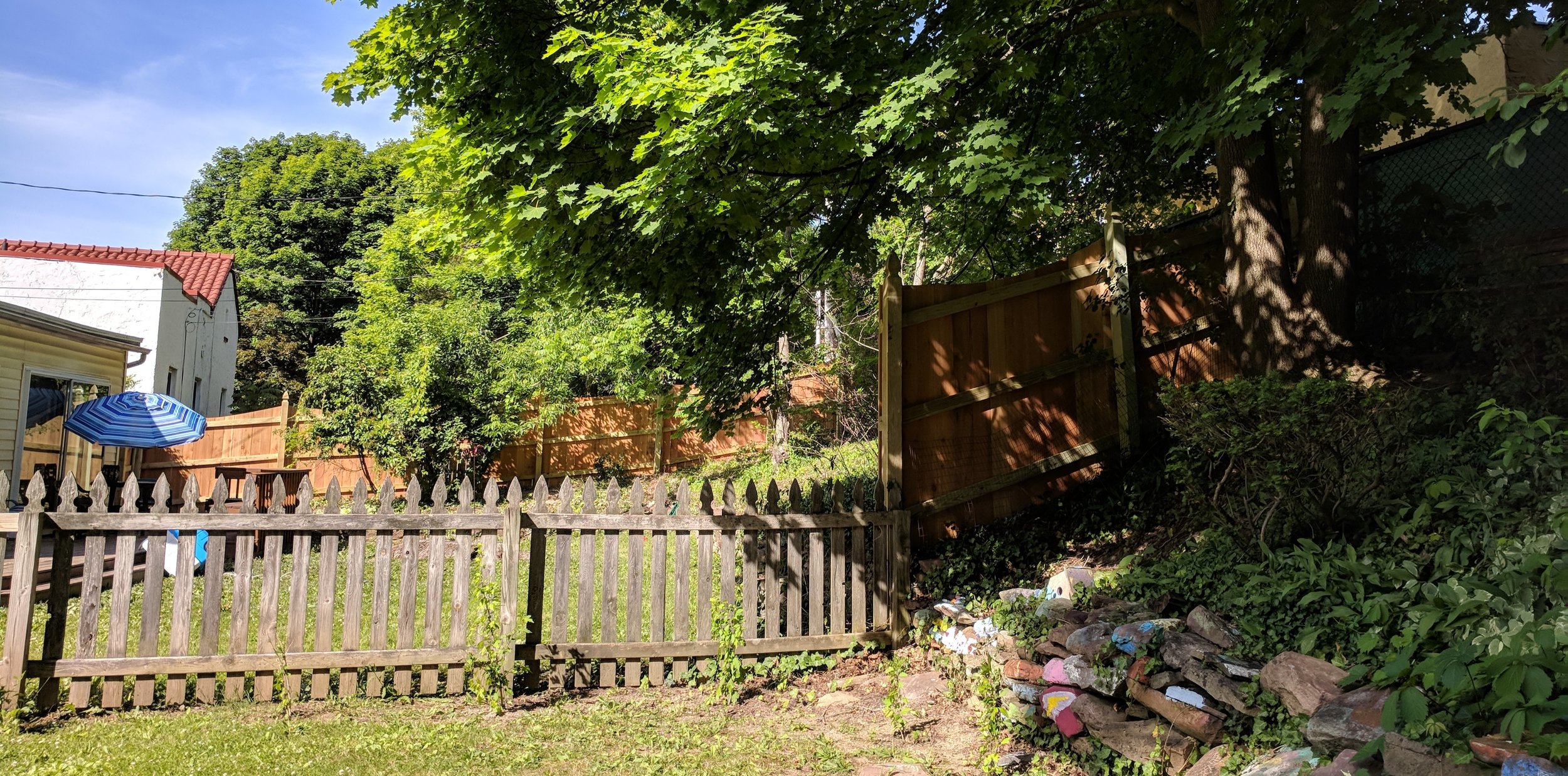Summer Vacation, Day Two
I'm not in love with our new neighbors and don't know what to do with myself.
I don't hate the neighbors. They just aren't exactly the people I would prefer living so close. The previous owner hardly ever set foot in her yard and was silent. These folks, they aren't silent and swear a lot and one of them smokes while another vapes and their dogs bark at all hours and, well, you get the idea.
Last week the owner of the house said she was having a six-foot fence installed for the dogs and asked if we wanted to have the four-foot picket between our houses replaced. She said of the fence guy, he'd give you a good price. We declined and that disappointed her some. It may be that we are difficult neighbors to her though I wonder what we do to disturb other than turn the pages in our books.
Summer vacation started yesterday. School ended Friday, but I don't feel on vacation until the first Monday. I have a big book to read, Larry McMurtry's Lonesome Dove which was recommended and is good so far. I get up early to write Morning Pages, go for a run, shave and shower, and, today at least, went to vote in the Democratic primary though voting seems pointless given what the country has become. Before noon, I pretty much have the day wide open. What to do with it?
Reading in the backyard is good unless the neighbors are out. One of them doesn't work so she's out quite often, talking to the dogs in paragraphs: "Hey, don't you understand that you can't fucking jump all over everything? Stop it! I said, stop jumping. Don't you get it?" Perhaps she should put these things in writing.
Even if our old, silent neighbor were back, reading isn't enough to keep me going the whole summer, six or seven hours a day. I get sleepy a few hours after running and sleepy when I read so the double whammy is likely to take me out if I don't do something more. I just haven't figured what to do. Yesterday I rebuilt the desk in my office, but that likely won't need doing again for a few years, so I'm out of luck there.
My brother and I often talk about retiring. We're both ten years away from it but talk about it anyway and when he is over tonight for dinner I might bring it up again. He says, you have to know how you'll fill the days. He says, you need a kind of schedule. I believe him, but on this second day of summer vacation haven't come up with it yet. I suppose I still have some time.
Taking time out to write and post something most every day is good. I could use an approximate time at which to do it. I don't need a time-clock schedule, but having a plan commits me to doing things. It makes it easy to commit to enjoying doing them too.
In Lonesome Dove the guys keep sipping (or gulping) whiskey, and I keep thinking that might be the way to spend the afternoon. This feeling is especially strong when my neighbor is loudly asking the dogs to tell her "where's the poop?" then saying, "ah, Jesus Fucking Christ I stepped in some of your shit you fucking thing. Stop eating it! What did I tell you?" A beer or three would work too.
It's quarter past four in the afternoon. I've read a hundred pages of Lonesome Dove, run seven miles, written three Morning Pages, let our dog in and out of the house thirty eight times (give or take), had lunch, and now have written whatever the hell this is. I could go ask the neighbor dogs.
I'm reminded of the Statler Brothers' song Flowers On The Wall, a favorite of my father's:
“Countin’ flowers on the wall
That don’t bother me at all
Playin’ solitaire till dawn with a deck of fifty-one
Smokin’ cigarettes and watchin’ Captain Kangaroo
Now don’t tell me I’ve nothin’ to do”
Dad didn't seem like the type to sit and do nothing. My first thought of him is being busy. He painted and roofed our house when we were kids. He remodeled every room in the house. He built a business from the ground up. It's easy now that he's at permanent rest to think of him as always in motion, but then I remember him watching ball games or staring at the St. Lawrence or sitting in his office figuring things that might not have needed figuring, and I see a little of myself in this backyard, mercifully free of neighbors for the moment, just having a moment of rest and not being too worried if I don't know yet what I'll do next. It will come to me and I'll be ready whenever that happens.




